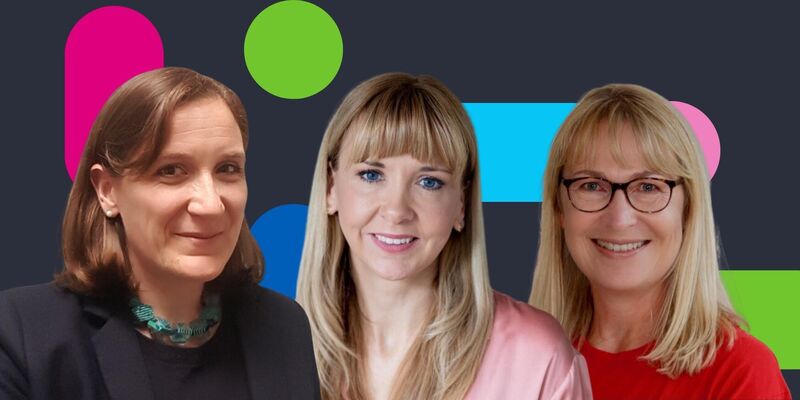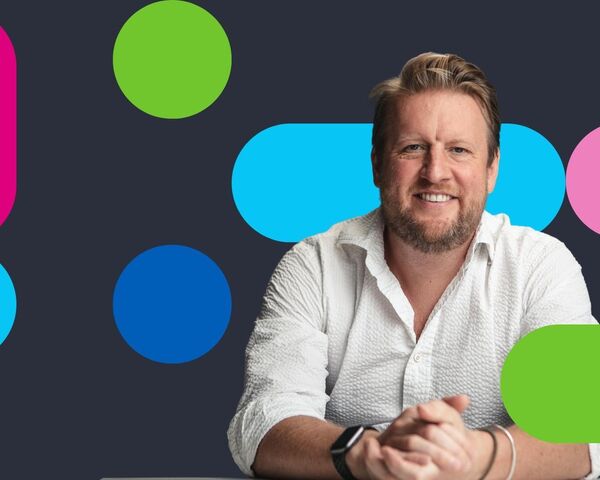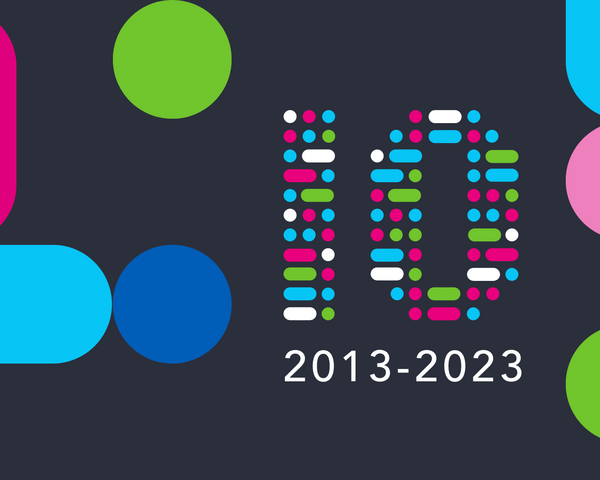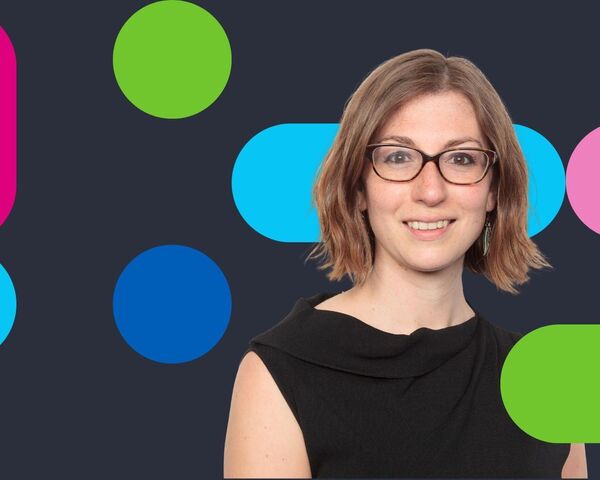Reflections on the impact and involvement of participant voices at Genomics England
By Jillian Hastings Ward, Rebecca Middleton, and Helen White on
Since 2016, the Participant Panel has helped to shape and guide the decisions and evolution of Genomics England.
Our independent advisory group includes people with all sorts of lived experiences of cancer and rare conditions. We’ve all been through consenting conversations and agreed to share our data in the National Genomic Research Library (NGRL).
Our primary aim is to keep the interests of the people whose data is held in the NGRL at the heart of decisions that are made about that data, by Genomics England and its partners.
We also find ourselves speaking up for patients and families of people with genetic disorders and cancer, in national conversations about genomics policy and where it should go next.
As Genomics England celebrates its 10-year anniversary this July, we’d like to reflect on the Panel’s significant impact. From where we started 7 years ago to where we are today and beyond, it's been an amazing journey.
Establishing the Participant Panel
A decade has passed since then-Prime Minister David Cameron announced the initiation of the 100,000 Genomes Project.
As Genomics England took on the mission to sequence 100,000 whole genomes, it spent the first few years developing the technical systems to make it a reality.
By 2015, Genomics England was ready to begin recruiting patients with rare conditions and cancers to the Project, in partnership with NHS England. Participants were invited to have their genomes sequenced and analysed, and to make their whole genome sequence and information about their health available for research.
For patients and family members considering taking part, this was a big leap into the unknown, with a new organisation.
Genomics England, an unfamiliar name at the time, needed to build trust that data would be stored securely and used wisely, to help drive discoveries in genomic medicine that could potentially benefit everyone.
Recognising its ethical responsibility to involve the people who were choosing to share this sensitive and powerful data in decisions about how it was used, the team at Genomics England decided to convene a Participant Panel.
In April 2016, a handful of volunteers were invited to join Vivienne Parry and Prof (now Sir) Mark Caulfield at the Genomics England office, near Charterhouse Square in London, for the very first Participant Panel meeting. We came from right across England (from County Durham to Southampton, from Essex to Cornwall), and brought a variety of lived experiences as NHS patients and carers of people with rare conditions and cancer.
We were all at very different places in our diagnostic journeys and didn’t know much about genomics, but we believed in its power to change lives. And we wanted to help make sure that patients and their families were at the heart of the decisions that Genomics England made along the way.
The early days of the Panel
From the outset, we were invited to share ideas and ambitions for the 100,000 Genomes Project, and worked closely with senior leaders to gradually establish a strong and trusted relationship.
As an independent advisory body, we were given the freedom to challenge the decision-makers at Genomics England and gained confidence when they showed us they were listening to our views and acting upon them – a way of working that remains true to this day.
In those early days, we invited project team members to come and tell us about their work, and took the opportunity to ask them lots of questions.
We were especially fortunate that our first Chair, Ed Sherley-Price, had experience in the field of data security, as many of our early conversations centred around who would have access to the project data and how it would be safeguarded.
We were also very grateful to Prof Caulfield, then Chief Scientist at Genomics England, who always made time to attend our meetings and tackled all the tricky questions we threw at him. This made sure that our experiences as patients and parents were informing the processes that he and his colleagues were putting in place to recruit participants and return their results in appropriate ways.
Top moments from the Panel
Over the years, the Panel has grown in confidence and as the nature of Genomics England’s work has expanded and developed, we have evolved in an attempt to keep up! We now meet 4 times a year and correspond a lot by email in between.
We have been adding value since the early days, in different ways, but here are a few relatively recent highlights.
Creating a language and terminology guide now used across the genomics ecosystem
In May 2022, Genomics England published our Language and Terminology Guide. We wrote this because we recognised there was a lack of guidance for professionals across the genomics ecosystem, who we noticed had been wondering how best to describe genetic disorders, disability and cancer, in language fit for the 21st century.
After its launch, a healthcare professional at North Thames NHS GMS Alliance approached us. They shared that, after 20 years as a clinical geneticist, they had adjusted the way they speak to their patients after reading it. We have heard many other examples like this since then.
Whilst it’s hard to measure the impact of this resource, if we’ve made even one conversation less difficult for patients and their families, we’re making a positive difference.
Reanalysis webinar
Genomics England has a small team of ‘gene detectives’ who are doing sterling work for those participants who remain undiagnosed.
They came to talk to the Panel about this ‘diagnostic discovery’ work last summer. We quickly realised that this would make a wonderful online webinar for the whole participant community, especially those who joined the 100,000 Genomes Project many years ago and may have given up hope of ever getting a diagnosis.
In collaboration with the Genomics England team, and CEO Chris Wigley, we prepared and presented this webinar in November 2022.
A transcript was prepared, and this is available on the Genomics England website, along with a recording of the event and further Q&As which arose from the session.
This was warmly welcomed by the participant community and also enabled the Genomics England team to interact with some of the people whose data they are analysing every day.
Shaping the return of ‘additional findings’ to participants
Participants in the 100,000 Genomes Project were offered the opportunity to hear about their ‘additional findings’ – genetic markers indicating a predisposition to certain forms of cancer or familial hypercholesterolaemia. Around 75% of participants took Genomics England up on this offer, but it was several years until it was possible to start looking for these ‘additional findings’.
The Panel felt strongly at that point that many participants may have forgotten about this element of the project, and that it would be right to send a reminder, and provide an opportunity for them to change their choice if they wished, before these potentially life-changing findings were shared with them.
Genomics England agreed and, with the assistance of their partners in the NHS Genomic Medicine Service, wrote to each participant with an invitation to ‘check their choice’. This meant that when the ‘additional findings’ were shared with participants, everyone could be confident that these would be welcomed, even where they indicated that screening or further investigations were needed.
Getting published in the European Journal of Human Genetics (EJHG)
The Editor of the EJHG invited us to write an article about our work, which was published in October 2022.
Our article – Research Participants: critical friends, agents for change – summarises our contribution to Genomics England’s work over the years, and sets out some recommendations for meaningfully involving research participants in the governance and delivery of other large scale genomics research projects.
Essentially, people are more likely to trust an organisation with their sensitive health data if they believe that people like them are involved in overseeing what happens to it.
Moreover, research organisations who empower their participants to contribute their own ideas can help to make the overall research stronger and more beneficial to the people whose data is powering those discoveries.
Please note: unfortunately, the article linked is behind a paywall, but the summary is available for anyone to view.
Taking the stage at various Genomics England and partner events
Much of the magic in genomics takes place behind laboratory doors, or in data centres where patients and their families never go.
Panel members have therefore made quite an impression over the years, popping up at a wide variety of scientific conferences and healthcare events in the UK and internationally, to share our patient stories and our perspectives on how the sector should develop as it matures.
Panel members have also been podcast guests and hosts, presenting a series of podcasts to celebrate Genomics England’s 10-year anniversary from a variety of different perspectives. You can listen to an episode about supporting patient journeys and one about the evolution of and plans for research at Genomics England.
This year we are also helping the organisers of the Genomics England Research Summit to incorporate as much content as possible that will be accessible to patients and their families with an interest in genomics.
Many of the Panel members will also be attending the event, and we are looking forward to sharing a coffee and a chat with anyone who’d like to come and see us.
Steadfast commitment to our advisory committee positions
We’re also immensely proud of the much-valued input we bring to all of Genomics England’s core projects and committees.
Members sit on the Ethics Advisory Committee, the Access Review Committee and the Genomics England Clinical Interpretation Partnership (GECIP) Board, as well as the steering committee for the Newborn Genomes Programme.
In these groups, we actively help to decide or advise on how participant data should be used. This has been a key role for Panel members since the very inception of the Panel, and will continue for as long as Genomics England exists.
Looking to the future
The National Genomic Research Library now holds the largest global research collection of whole genome sequences from patients with cancer and rare conditions.
As Genomics England’s role within the genomics ecosystem continues to evolve, the Panel grows with it. We live with daily reminders about the importance of genomics in healthcare. We and our loved ones are still looking to Genomics England and its partners to find more diagnoses and treatments for people like us and the communities we are here to represent.
We will continue to encourage genomics researchers to collaborate directly with patients and their families. It remains true that in genomics, every data point has a face – and that behind those faces are people with skills and experiences that can help clinicians and researchers to get better at what they do.
We now represent the interests of the tens of thousands of people whose data is held by Genomics England, not only 100,000 Genomes Project participants, but participants involved in other key Genomics England projects and initiatives, as well as NHS Genomic Medicine Service patients who choose to participate in ongoing research.
We’re currently undertaking a recruitment drive for additional Panel members, and it has been really exciting to read all the applications from different kinds of people whose lives have already been touched by Genomics England’s work. Their enthusiasm and energy will help the Panel to continue its mission to keep participant interests at the heart of the organisation, long into the future.
About the authors
Jillian is the Chair of the Participant Panel. Her family joined the Project in 2015, in search of answers for her young son who is severely disabled. She brings professional analytical, strategic and communication skills from a career in consultancy and the Civil Service. She also brings her years of lived experience with a child who has complex needs.
Rebecca joined the Genomics England’s 100,000 Genomes Project in 2015, and now sits as Vice Chair of the Participant Panel. As a PR and Communications Director with over 20 years of international experience, Rebecca brings her strategic view and experience to the panel, as well as her personal story and lived experience as an adult rare disease patient.
Having lost family to brain aneurysms, and having undergone surgery for an aneurysm herself, Rebecca recently founded Hereditary Brain Aneurysm Support (HBA Support) and is establishing a patient centred organisation to support patients and families living with familial brain aneurysm syndrome, raising awareness of the condition as a rare disease and representing the patient experience.
Helen joined the Participant Panel in 2018 having been recruited to the 100,000 Genomes Project in 2017 due to endometrial (womb) cancer. She sits as the Vice Chair for Cancer on of the Participant Panel. Helen is a keen advocate for participants and patients with gynaecological cancers and genetic cancer susceptibilities, which has led her to become a patient representative for the endometrial cancer GECIP domain, CanGene-CanVar and the NCRI Gynaecological Group. She also leads Peaches Womb Cancer Trust Patient Voices group.


